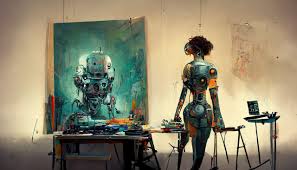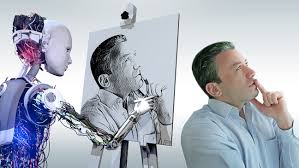
This New AI Tool Can Create Art, Music — and Lawsuits?
We’ve entered an era where AI doesn’t just automate — it creates. From breathtaking digital art to original music compositions, artificial intelligence is now capable of producing work that rivals (and sometimes surpasses) human creativity. But as with every tech breakthrough, there’s a catch — and this one comes with potential legal chaos.
Can a machine own art? Can you be sued for using AI-generated content? Let’s unpack the powerful new wave of generative AI tools and the legal gray zones they’re already stirring up.
🎨 The Creative Rise of Generative AI
Tools like OpenAI’s ChatGPT, DALL·E, Midjourney, and Suno can now generate:
-
Hyper-realistic images from simple prompts
-
Entire symphonies or pop songs from scratch
-
Photorealistic video scenes
-
Long-form writing, code, even legal documents
These aren’t crude prototypes. They’re being used by marketers, musicians, coders, and even film studios right now. And while the technology feels like magic, it’s built on something very real: machine learning models trained on massive datasets, often pulled from the internet.
⚖️ When Inspiration Becomes Infringement
And here’s where the lawsuits begin.
Many AI models are trained on copyrighted content — artwork, music, writing, photos — without the original creators’ knowledge or permission. As a result, several key legal questions are now front and center:
1. Who Owns AI-Generated Work?
In most jurisdictions, only humans can hold copyright. That means:
-
If you use AI to generate something, you may not be able to protect it legally.
-
Platforms like the U.S. Copyright Office have denied protection to AI-only creations.
2. Is Using AI-Trained on Copyrighted Work a Violation?
Artists and authors have filed lawsuits claiming that:
-
AI companies trained their models using their original work without consent.
-
The generated content is a derivative work — essentially, digital plagiarism.
Big names like Sarah Silverman, Getty Images, and Universal Music Group are already involved in high-profile cases.
🎧 Real-World Fallout: Lawsuits and Controversy
-
Music Industry: Songs mimicking real artists’ voices using AI have gone viral — prompting labels to demand stricter controls and AI voice bans.
-
Visual Artists: Platforms like ArtStation and DeviantArt have seen backlash as AI models replicate artist styles without credit or compensation.
-
Publishing & Film: Writers and screenwriters fear AI tools will undercut creative labor or be used to mass-generate low-quality content.
🛡️ What You Can Do (and What to Watch)
If you’re using AI for creative projects, protect yourself by:
-
Reading platform terms: Some tools let you own the output, others don’t.
-
Avoiding commercial use unless you’re sure your generated content is safe from infringement claims.
-
Disclosing when AI was used, especially in professional or published work.
As courts begin ruling on these issues, expect new laws and frameworks — including digital watermarking, AI-content labels, and licensing requirements for training data.
Final Thought
AI’s ability to create is nothing short of revolutionary — but with that power comes a flood of unanswered legal and ethical questions. Until lawmakers catch up, we’re in a Wild West moment of innovation, opportunity, and risk.
So yes, the AI tool that generates your next album cover or novel chapter might be brilliant — but it could also land you in court. Use with wonder… and caution.
